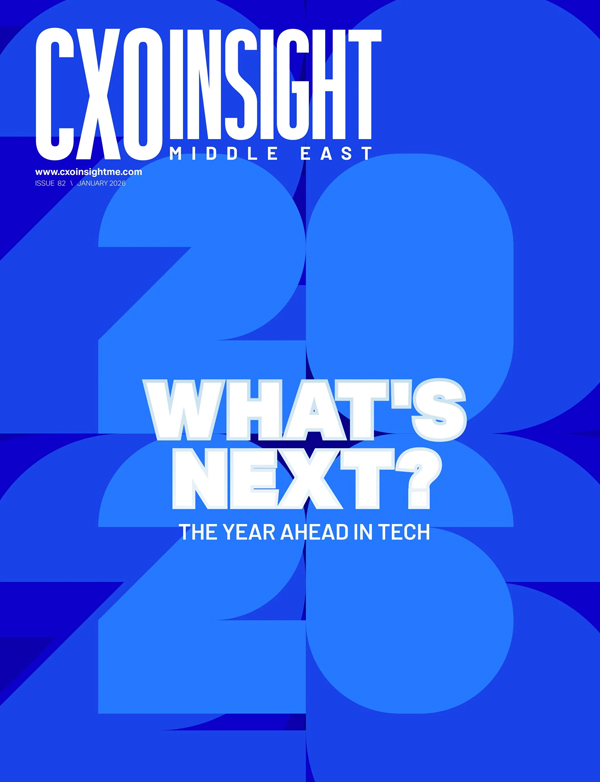The global e-grocery market is experiencing an upward trajectory, with artificial intelligence (AI) playing a crucial role in shaping its future. In the MENA region, the e-grocery market reached a value of $4.5 billion in 2022 and is projected to reach $25 billion by 2030. The shift toward online grocery shopping is primarily driven by convenience, 24/7 availability, and a shift in consumer habits that emerged during the pandemic. Consumers have increasingly opted for doorstep delivery, preferring the ease of online shopping over traditional in-store experiences. However, this shift has introduced several challenges. For grocers in the MENA region, major challenges include stock replenishment, inventory inaccuracies, sub-optimal utilisation of last-mile delivery teams, and a lack of operational transparency.
The right technological investments should include AI, such as Machine Learning (ML) can help grocers overcome these challenges. ML, a subset of AI, enables systems to analyse vast amounts of data and make accurate predictions without manual input. ML is critical in optimising e-commerce processes such as supply chain management, inventory forecasting, warehouse operations, and delivery logistics. By streamlining these functions, ML not only improves operational efficiency but also enhances the customer experience, offering personalised recommendations and enabling fast adaptation to changing consumer preferences.
Inventory management and auto replenishment
Manual inventory management often leads to gaps between reported and actual stock, causing incomplete orders and affecting customer satisfaction. However, data-driven solutions offer a way to predict demand more effectively and ensure accurate stocking. By analysing large datasets—such as browsing history, purchase patterns, and market trends—ML algorithms can forecast demand with impressive precision. These predictive insights help retailers maintain optimal stock levels, plan for seasonal changes, and prevent both overstocking and stockouts. In fact, recent data shows that businesses that implement smart inventory solutions see up to a 95% improvement in inventory accuracy.
ML algorithms, such as gradient boosting models, analyse key metrics like sales run rates, supplier lead times, and stock levels to create automatic reorder plans. By eliminating manual oversight, auto-replenishment ensures grocers maintain optimal inventory levels, leading to higher stock availability and fewer stockouts. Additionally, the system reduces the risks associated with overstocking, thereby minimising write-offs and food waste.
In the MENA region, e-grocers like Nana in KSA have adopted technologies to meet rising demand, streamline operations, and enhance customer satisfaction by improving demand forecasting, reducing expired goods, and enabling data-driven decision-making.
Personalised product recommendations
Predicting consumer demand also enables grocers to adjust inventory and pricing strategies in real-time, boosting sales and customer satisfaction. ML algorithms can analyse purchase history to deliver personalised and dynamic offers, increasing gross merchandise value by up to 20%. This not only drives revenue but also enhances customer loyalty through relevant product recommendations. Additionally, ML helps test new ideas, build client profiles, localise deals, and streamline daily operations—creating a win-win for businesses and their customers.
Price intelligence
By utilising ML to monitor competitor pricing, market trends, and demand elasticity, grocers can implement dynamic pricing strategies that can increase GMV by approximately one per cent, which is significant given that grocers typically earn two to five per cent margins on sales. ML identifies patterns such as seasonal demand shifts and delivery spikes, allowing e-grocers to optimise prices in real-time. This approach also adjusts for fluctuating supply chain costs and product expiration, ensuring efficient inventory management. Additionally, ML helps manage delivery fees during peak times and offers discounts to incentivise purchases, maximising revenue while maintaining competitive pricing and reducing waste, ultimately contributing to improved commercial margins.
Last-mile delivery pptimisation
The last mile, the final step in the delivery process, presents significant challenges for grocery retailers, particularly in meeting time-sensitive demands. Yango Tech’s ML-powered algorithms and routing solutions help optimise routes, reduce fuel consumption, and speed up deliveries. Batching allows couriers to deliver multiple orders nearby, cutting delivery times and costs. The promise calculation algorithm predicts delivery time using order history, warehouse load, and number of active couriers, while the surge algorithm dynamically adjusts delivery costs in real time to regulate demand and maintain fast delivery speeds during peak times. Moreover, real-time visibility of delivery operations allows companies to update customers on the status of their orders, thereby improving the overall customer experience.
With e-grocery penetration between five to nine per cent across the region, advanced technologies serve as catalysts for further market expansion. Grocers can make data-driven decisions to manage orders, inventory, and deliveries effectively, reducing costs and increasing margins. The speed of technology adoption will place those who embrace it early at the forefront of delivering an exceptional e-grocery experience.










Discussion about this post